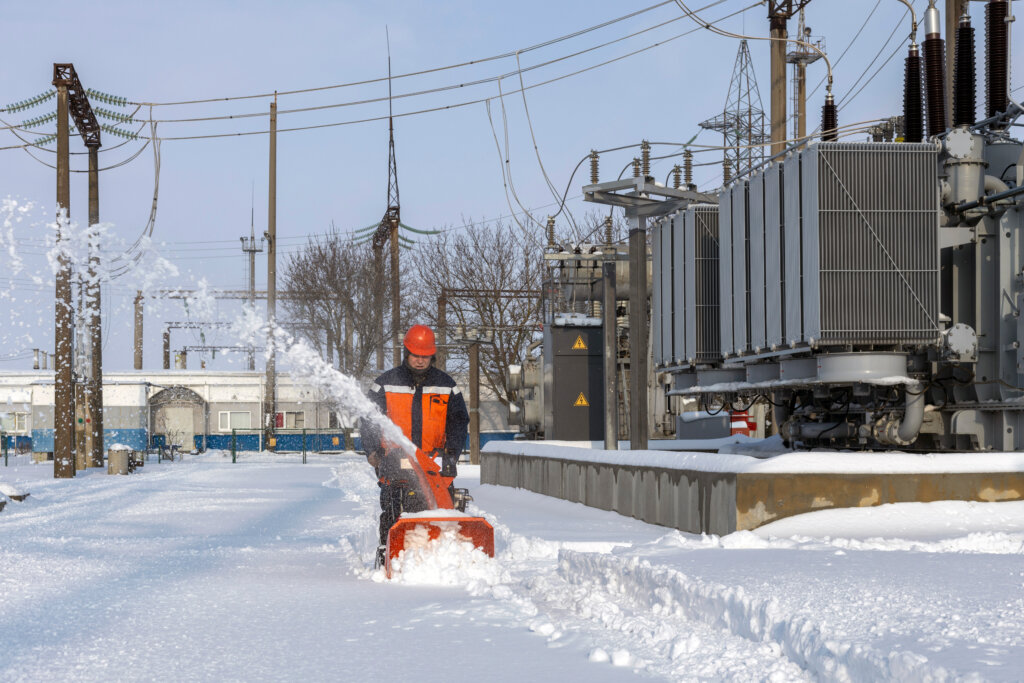
Why does critical equipment fail in extreme winter weather?
Generator Owners and Operators are responsible for keeping their generating units reliable and available. A comprehensive and effective winterization plan supports these responsibilities during extreme cold winter weather conditions.
An effective winter weather readiness program includes the seven key components outlined in NERC’s Generating Unit Winter Weather Readiness Reliability Guideline:
- Safety
- Management Roles and Expectations
- Processes and Procedures
- Evaluation of Potential Problem Areas with Critical Components
- Testing
- Training
- Communications
One important aspect of an effective cold weather program is the evaluation, identification, and protection of critical components. Critical components are equipment or instruments that may cause the following if not adequately protected from freezing temperatures:
- Forced outages and unit trips
- Unplanned derates
- Prevent or delay startup
- Unit damage
- Impact environment controls
- Affect fuel supply
Protection of these critical components will likely include heat tracing, insulation, enclosures, covers, buildings (windows, doors, louvers openings), fixed and supplemental heaters, deicing systems, and remote alarming. It is paramount that a generator cold weather plan addresses the implementation and maintenance of protection measures of critical components.
Protection of critical components can fail due to various factors.
Insulation and heating systems:
Insufficient, crushed or missing insulation will lead to heat loss and freezing of components and systems. Heating and ventilation may malfunction due to power outages and equipment failures.
Enclosures and shelters:
Poorly sealed or damaged enclosures, deterioration of seals or weatherstripping due to aging or exposure to harsh weather conditions, or even doors and windows left open, may allow cold air, water, or moisture ingress. Heavy snow and ice accumulation on shelters may cause structural damage or collapse.
Deicing systems:
Malfunction of deicing equipment due to power outages or mechanical failures can occur. Inadequate coverage or capacity of deicing systems may result in ice buildup.
Remote monitoring and alarms:
Malfunction or failure of monitoring sensors, transmitters, or communication systems can occur. A lack of response to alarm notifications due to oversight or human error may result in failure.
Drainage systems:
Blockage or damage to drainage channels may lead to water pooling and freezing. Inadequate slope or design of drainage systems may result in ineffective water removal.
Redundancy and backup systems:
Lack of testing or maintenance of backup and standby systems may result in failure when needed. Inadequate redundancy design may leave critical components vulnerable to single-point failures.
Regular maintenance and inspections:
Neglecting scheduled maintenance activities may result in failure or damage. Inadequate resources or technical expertise for thorough inspections and repairs can also compromise the effectiveness of protective equipment.
By addressing these protective measures in a winter weather readiness program and considering potential failure points, power generation facilities can enhance the resiliency of critical components and minimize the risk of facility downtime or damage during severe winter weather conditions. MRO’s Generator Winterization Program (GWP) can help!
The GWP is a voluntary program that addresses cold weather risks not covered by the mandatory NERC Reliability Standards, promotes winter weather preparedness, and can help you with cold weather protection of critical components.
Participating entities receive a non-binding winterization readiness evaluation. This evaluation includes a performance rating and identification of the entity’s best practices and recommendations for improvement related to cold weather preparedness. The MRO GWP was established in 2021 and has had approximately 25 entities across 10 states and provinces participate.
Visit the MRO GWP website for more information. Contact [email protected] to participate in the program in 2024.
– Eric Graftaas, MRO Principal Power Systems Engineer